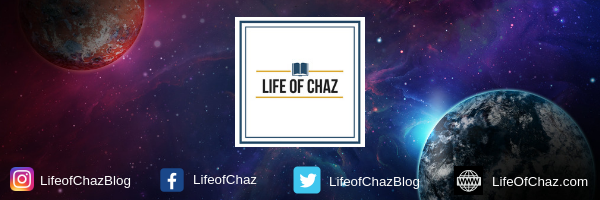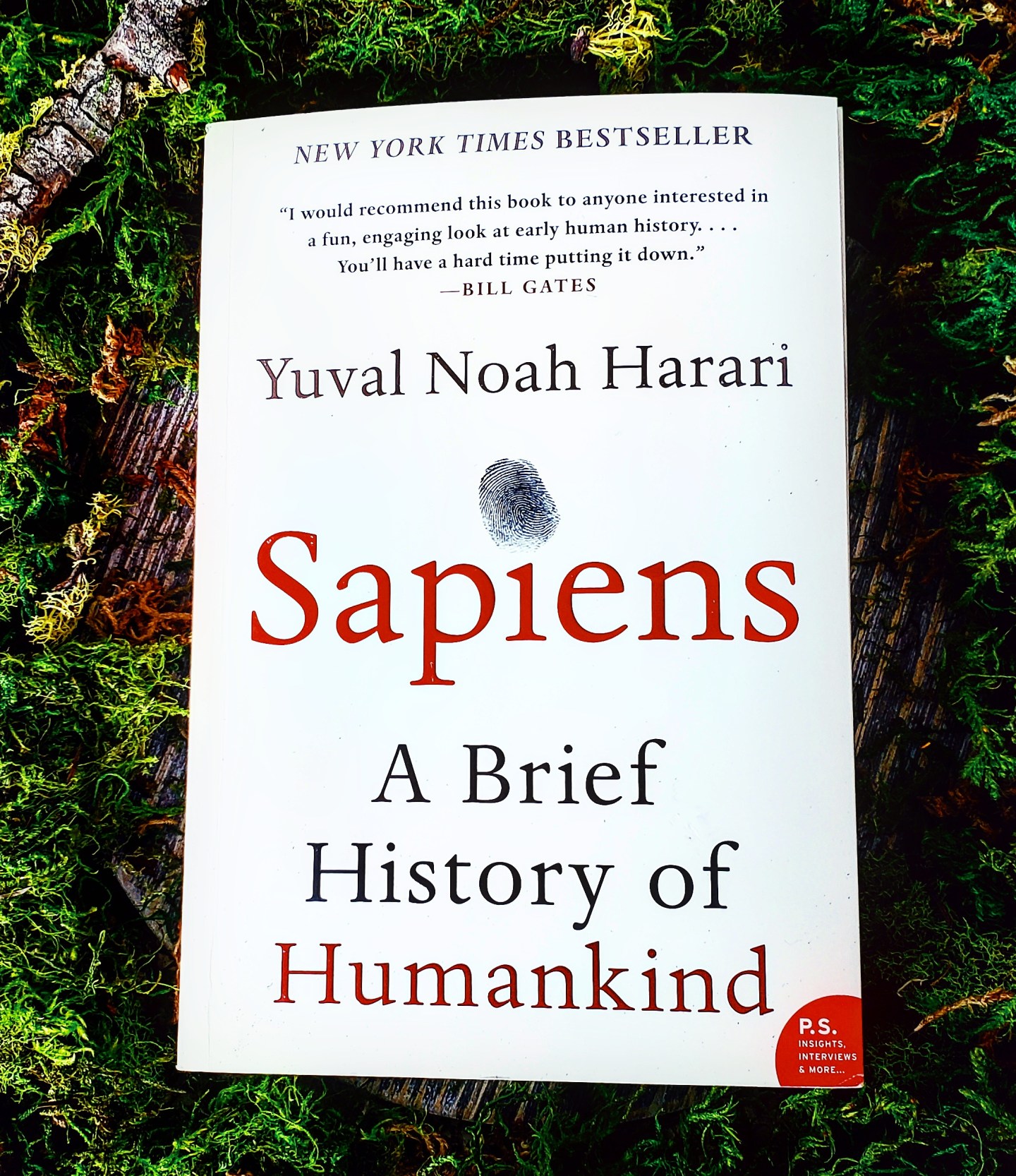Book – Sapiens
Author – Yuval Noah Harari
In Sapiens, Dr Yuval Noah Harari spans the whole of human history, from the very first humans to walk the earth to the radical – and sometimes devastating – breakthroughs of the Cognitive, Agricultural and Scientific Revolutions. Drawing on insights from biology, anthropology, paleontology and economics, he explores how the currents of history have shaped our human societies, the animals and plants around us, and even our personalities. Have we become happier as history has unfolded? Can we ever free our behaviour from the heritage of our ancestors? And what, if anything, can we do to influence the course of the centuries to come? – Goodreads Synopsis
Revolutions
A big part of this book is experience the evolution of humans through the biggest turning points that we had in our shared history. Dr. Harari breaks these down into four major turning points, with three of them being dubbed “Revolutions”.
We have:
- The Cognitive Revolution
- The Agricultural Revolution
- The Unification of Humankind
- The Scientific Revolution
Now I could go into all of them like a boring school assigned book report, but let me just tell you now that all of these turning points are completely fascinating and worth reading up on.
I guess if you really want the Chaz version of each one here you go:
- Hey we can think!
- Hey we can plant!
- Hey we can work together!
- Hey we can science!
(Now you know why I never made it in academia…)
Perspective
One of the greatest accomplishments of Sapiens, is that it helps you put everything into perspective. It is hard to do this day in age, but Sapiens really helps to pull everyone back down and ground them. Dr. Harari goes in at length about how humans have this remarkable gift to create fiction.
That fiction comes in all forms, but focuses on some controversial topics that a lot of people would like to ignore. This include the social constructs of religion, marriage, capitalism and other ideologies, etc. (Or religion if you follow Dr. Harari’s thinking of capitalism.) Thanks to this book, I even made the mistake of telling my awesome girlfriend “Hey, it says here marriage is a social construct! How true is that!” (On a side note, if any of you know a good marriage counselor please send them my way now.)
The Human Story
One of the most fascinating takeaways from this novel was: Where do we go from here? Now I know that Dr Harari has written another novel after this one that goes more in depth into that (Which I am excited to read!), but I could not shake the thoughts long after I finished this book. There are so many fascinating things that he brings up that it is impossible to not think about them. Are we going to create a new species of sapiens by genetically engineering? Has it already started to happen? It really makes you think where this species has come and where it is going. What will the legacy be?
Should I Read It?
This novel has received amazing acclaim from some of the worlds most influential people, and for good reason. Sapiens should be read by everyone at some point. Even if you don’t agree with everything that is presented in this book, it is 100% worth the read. My post does not do the book justice, mostly because it would be who knows how long with trying to unpack everything that Sapiens has.
Mixing in nonfiction is good for you anyways.
“How many young college graduates have taken demanding jobs in high-powered firms, vowing that they will work hard to earn money that will enable them to retire and pursue their real interests when they are thirty-five? But by the time they reach that age, they have large mortgages, children to school, houses in the suburbs that necessitate at least two cars per family, and a sense that life is not worth living without really good wine and expensive holidays abroad. What are they supposed to do, go back to digging up roots? No, they double their efforts and keep slaving away.”
– Depressing quote to finish the post.


It’s on my bookshelf, but haven’t gotten to it yet.
LikeLiked by 1 person
That quote at the end is absolutely correct. It’s a brilliant system. Totally corrupt but brilliant. Its sole purpose is to keep everyone trapped in it. Heads down working to support it until death. And yes the way to escape it is to turn our backs on it and go back to digging up roots.
LikeLiked by 1 person
I didn’t like this book. I thought it oddly gave too much detail, and alternatively not enough. I really had a problem with the gossip section
LikeLiked by 1 person
Another one to add to the To Be Read pile! Thanks for the tip, Mel
LikeLiked by 1 person
Great review. I think humans are very good at making up fiction indeed.
LikeLiked by 1 person
This is one of the most influential books I have read. You have a treat waiting with Harari’s “Homo Deus”. johnsmachines.com
LikeLiked by 1 person
I loved this book! It’s definitely my favourite ever!
LikeLiked by 1 person
I loved this book. My son then gave me Homo Deus. I have had to read that in stages as it is interesting but very depressing in the view of our future as humans.
LikeLiked by 1 person
I found this book interesting, so much so that I ended up writing a review of it along with two follow-on articles discussing two of the concepts Harari explored in great detail. If you are interested, see:
https://agoodreedreview.com/2017/05/26/book-review-sapiens-humankind/
https://agoodreedreview.com/2017/05/30/sapiens-thoughts-common-myths/
https://agoodreedreview.com/2017/10/11/sapiens-follow-on-part-2-happiness/
I also found his second book, ‘Homo Deus’ interesting, although I thought he spent a bit too much time recapping ‘Sapiens’ before getting to new material. I reviewed that one here:
https://agoodreedreview.com/2018/07/03/book-homo-deus/
Harari’s perspective is both realistic and depressing with his recognition that humankind has great potential coupled with equally great destructive power.
I have his third book (’21 Lessons for the 21st Century’) on my reading stack, though I’ve not yet started reading it yet.
LikeLiked by 1 person
An interesting and thoughtful review. I must put it on my tbr list.
LikeLiked by 1 person
I thought this was a great read as well
LikeLiked by 1 person
I absolutely loved Sapiens.. great review!
LikeLiked by 1 person
Prachi I’m novice in book readings, is it the best book to start with????
LikeLike
Depends on whether you like fiction or non fiction. In non-fiction and something scientific which has an impact on other aspects, this is a great book to start with. Even though it’s long, it’s easy to read and digest😊
LikeLike
No, if you are “novice in book readings,” this would not be the best book to start with. You’ll never read another one. This is a challenging book. Find a quick page-turner-type novel!
LikeLike
Well, I have intended to read this book for the longest. Your review certainly adds to the recommendation. Hope to read it soon!!
LikeLiked by 1 person
I have heard of this one. Now that I’ve read your review, I definitely plan to read it! Great review.
LikeLiked by 1 person
Fascinating!
LikeLike
Great post. I need to read this one too. And hey, marriage is a social construct 😁
LikeLiked by 1 person
Great post and looking forward to the read – thank you!
I did (a lot) of science and found how many teachings throughout medicine and astronomy agree right on with the BIble. Down to Genesis.
Amazing!
And thank you for the like on Well… on my blog! I only have 3 separate ones…
LikeLike
Loved this book, was fantastic. Recommend it to everyone.
LikeLiked by 1 person
This one has been in my To-Be-Read for such a long time. Definitely going to read it soon! xx (btw, loved the Chaz versions of the topics spoken in the book)
LikeLiked by 1 person
Liked the audio version.
LikeLike
You’re right when you say that quote is depressing 🤪
LikeLiked by 1 person
Glad to have found your book reviews since I’m always looking for new stuff to read! Loved Sapiens!
XXX Puma
LikeLike
Enjoyed your review. Good chance I’ll buy the book. Thanks!
LikeLike
It’s on my ‘to read’ list!
LikeLike
I keep meaning to read “Sapiens” but just haven’t gotten around to it – you may have convinced me.
LikeLiked by 1 person
It is awesome!
LikeLike
Looks like something I would want to read. I’ve found the evolution of the human species scary and exciting at the same time.
LikeLike
Very interesting book, though sometimes I question what the author emphasizes as he can only superficially summarize each of the 4 human revolutions in a paperback book. For example, his insistence that humanity is moving on a trajectory towards greater and greater “unity”. (Kind of like this is a good thing?). I would argue against this idea. Nature does not move towards unity, it moves towards diversity and the formation of self-supporting relationships between diverse entities (e.g. species), which tend to become more complex over time.
I think you could argue that humans are the same whether you are examining the level of genes, communities, cultures, societies, etc. We only appear to be moving towards unity, because there are greater and greater numbers of us on this planet, connecting the dots between us. Empire building / globalization are working to homogenize our diversity, but as soon as lines of communication, commerce, and travel, are broken you will find the underlying trend towards diversity at work, diversifying! This is the strength of nature and human society alike, and which has enabled life to persist through all manner of changing environments on this planet.
LikeLike
I loved this book. So well-written and informative.
LikeLike
Great review!
LikeLike